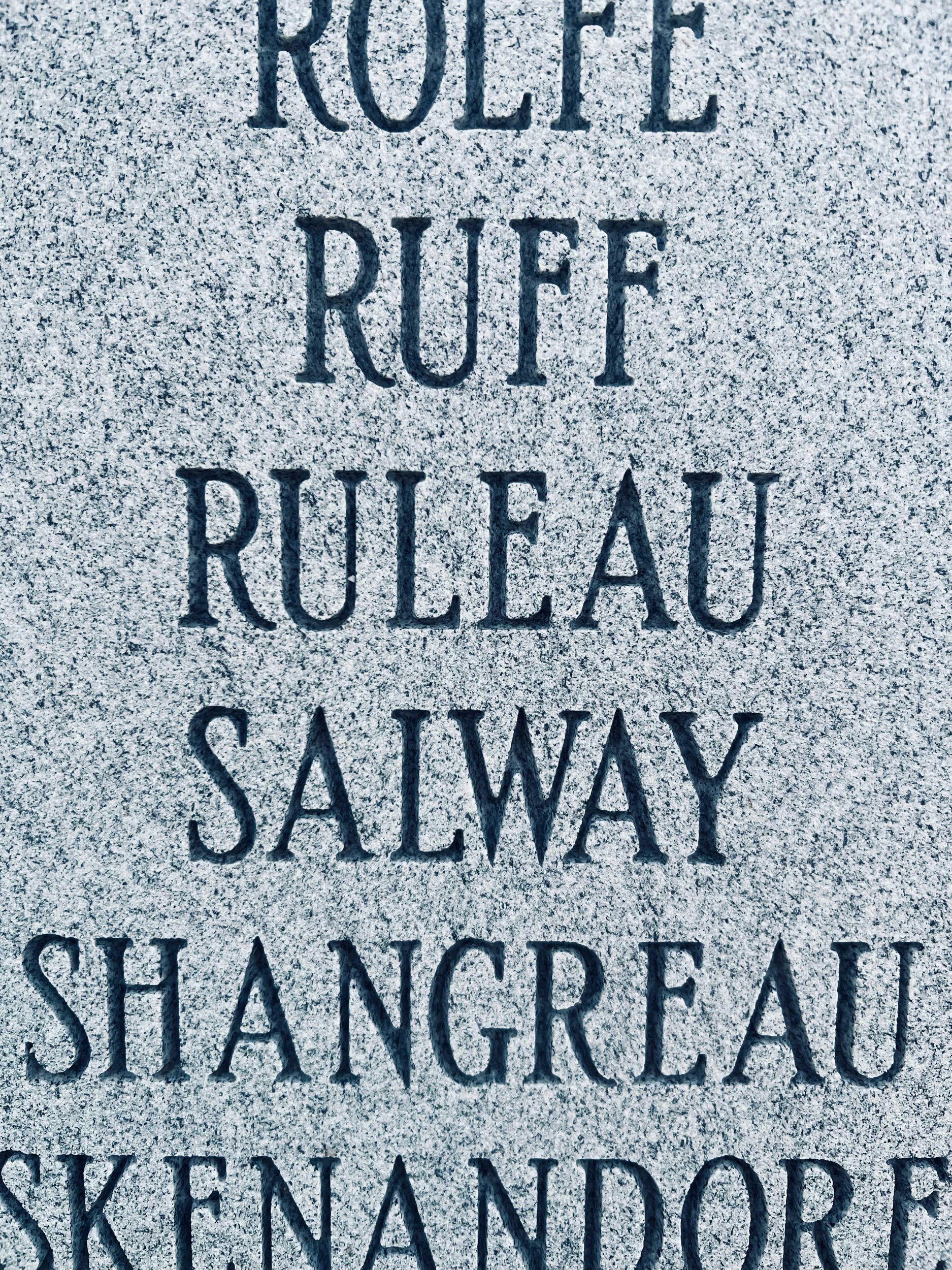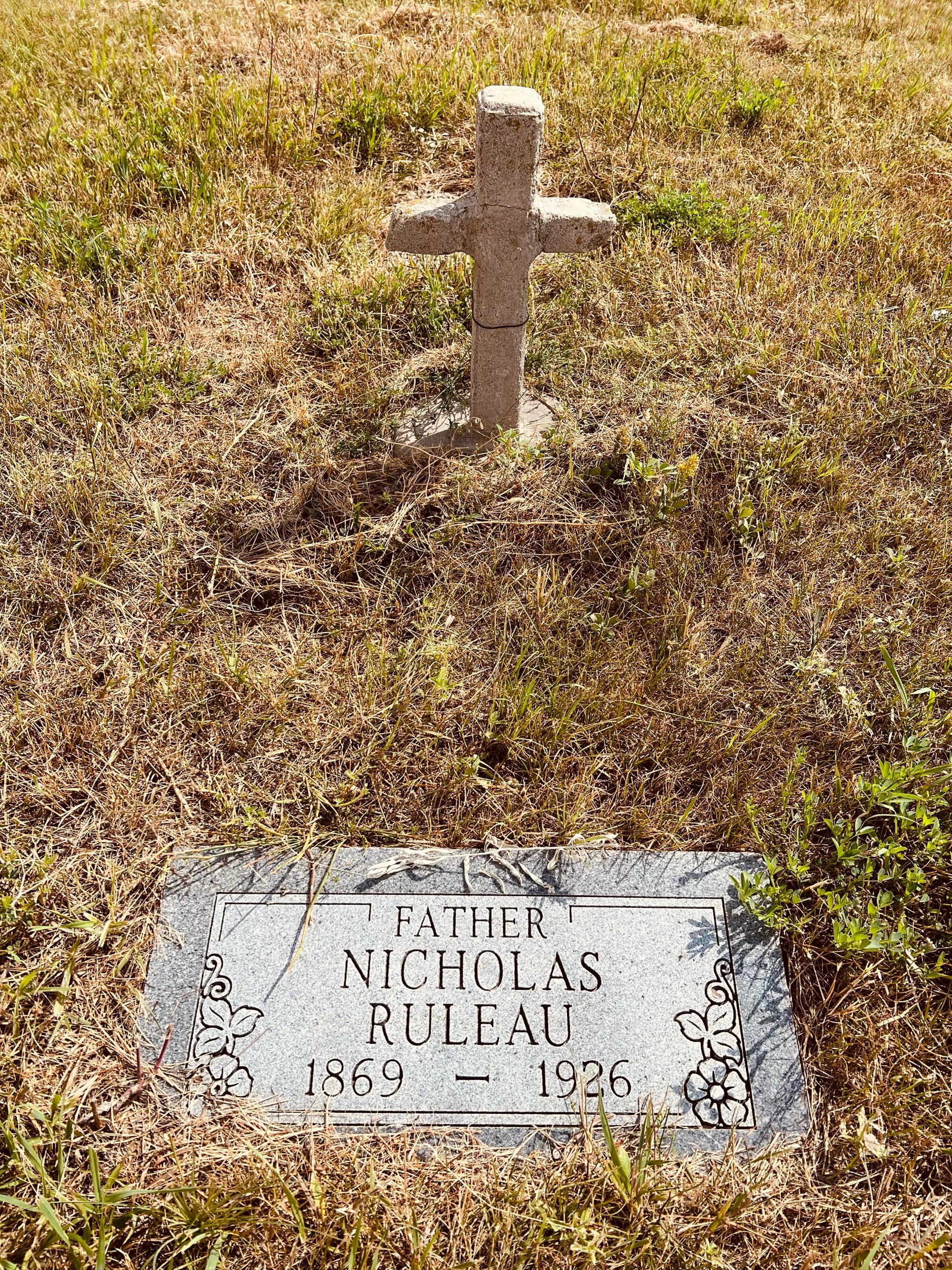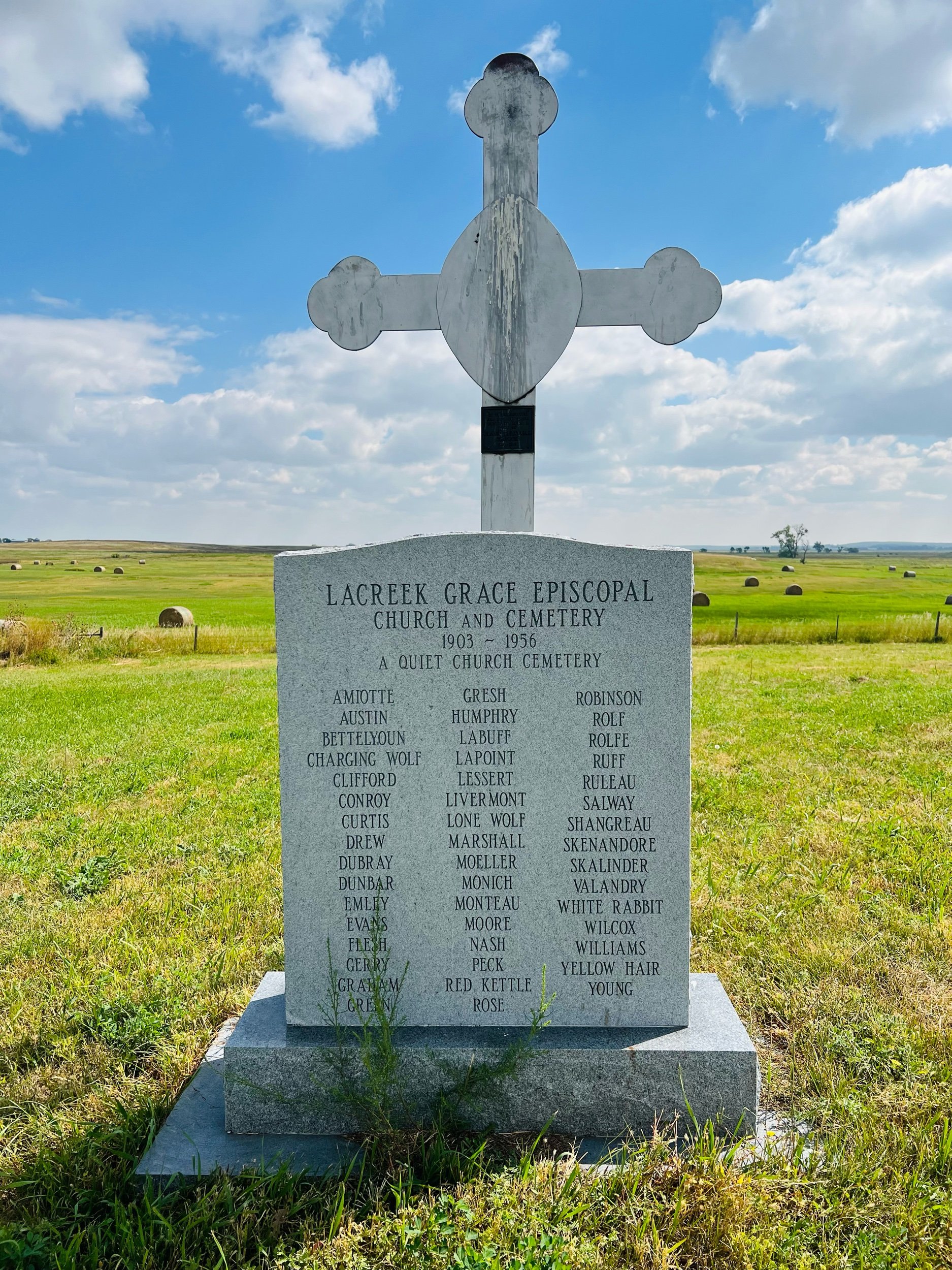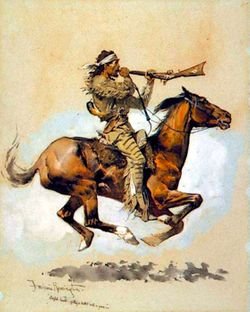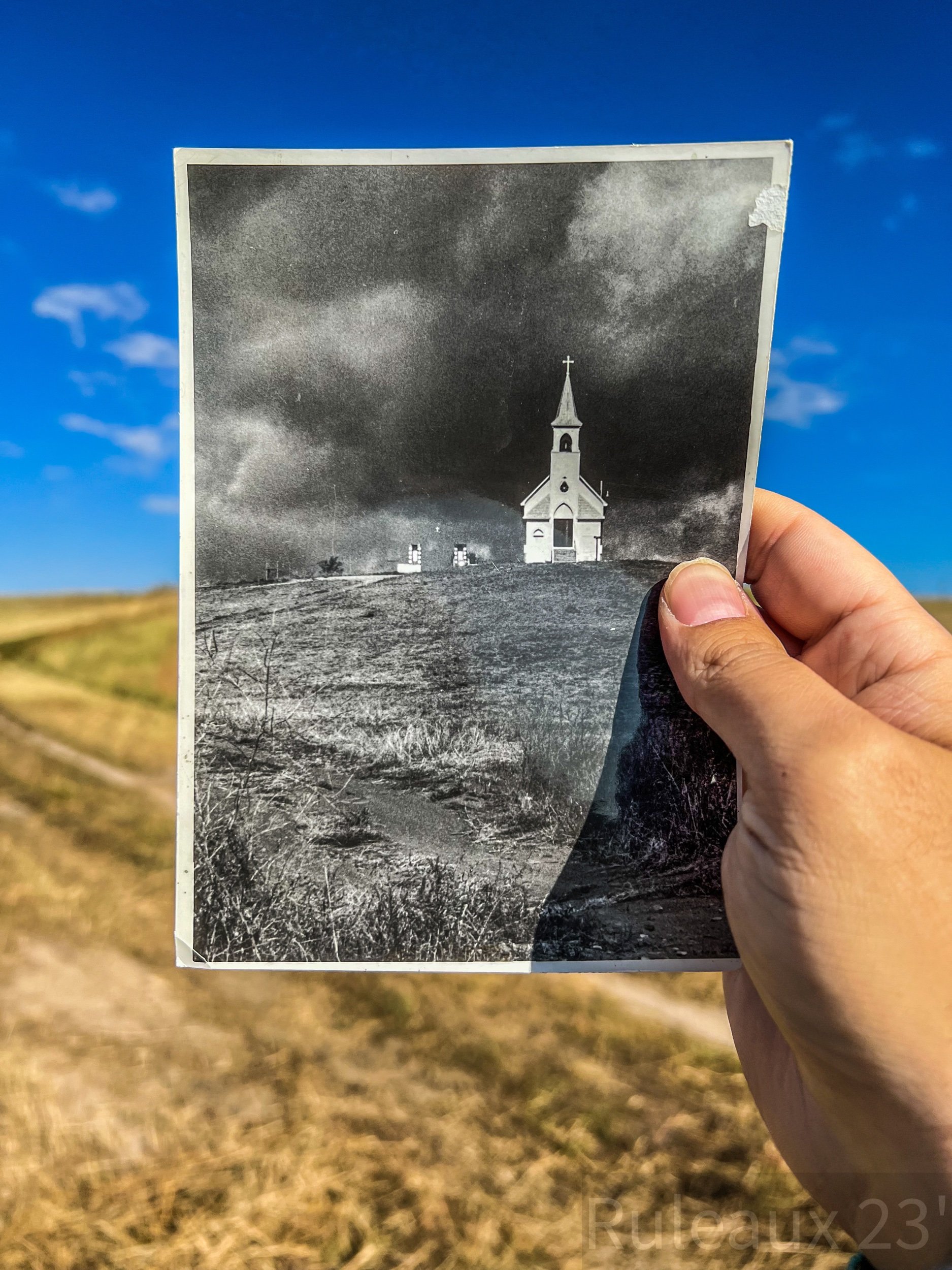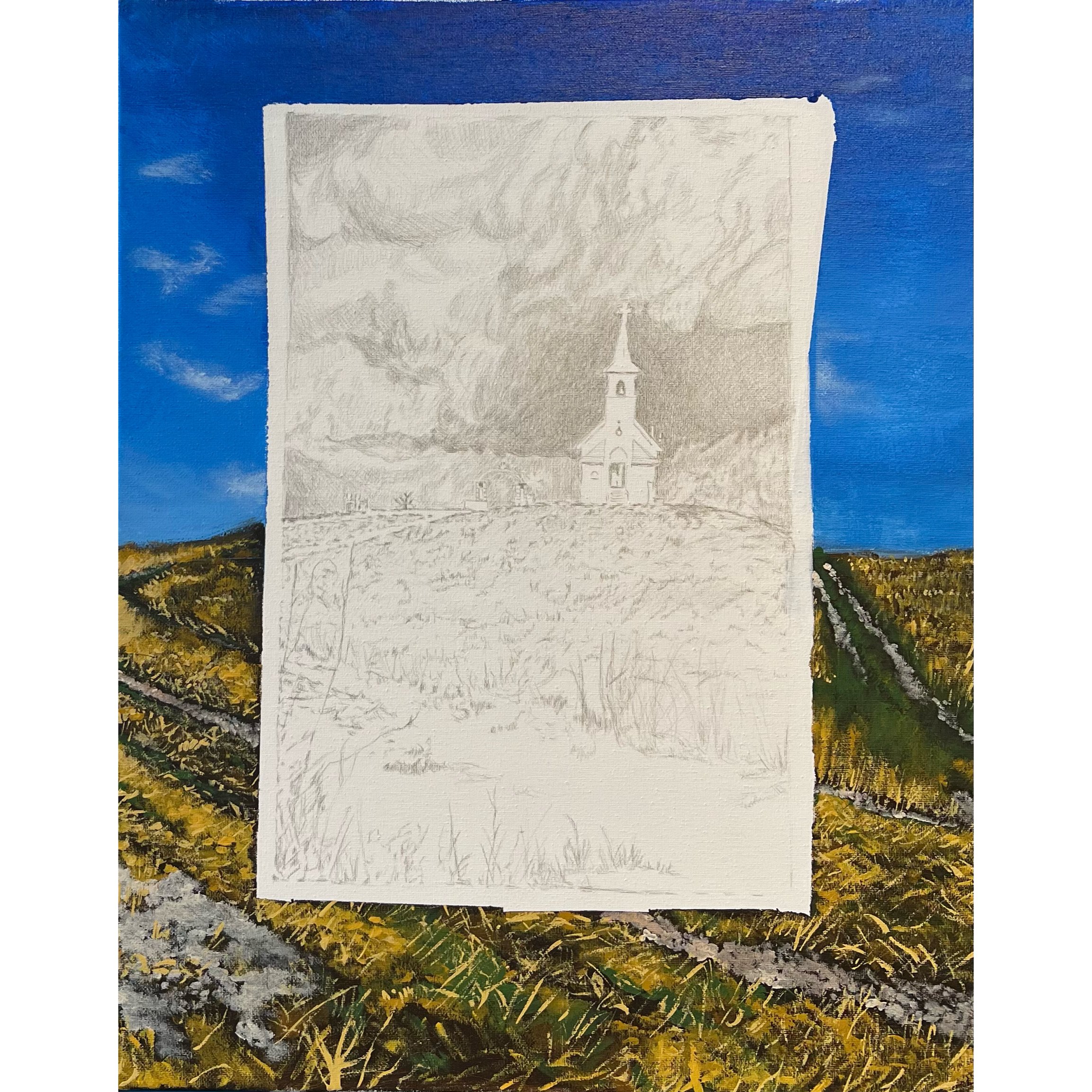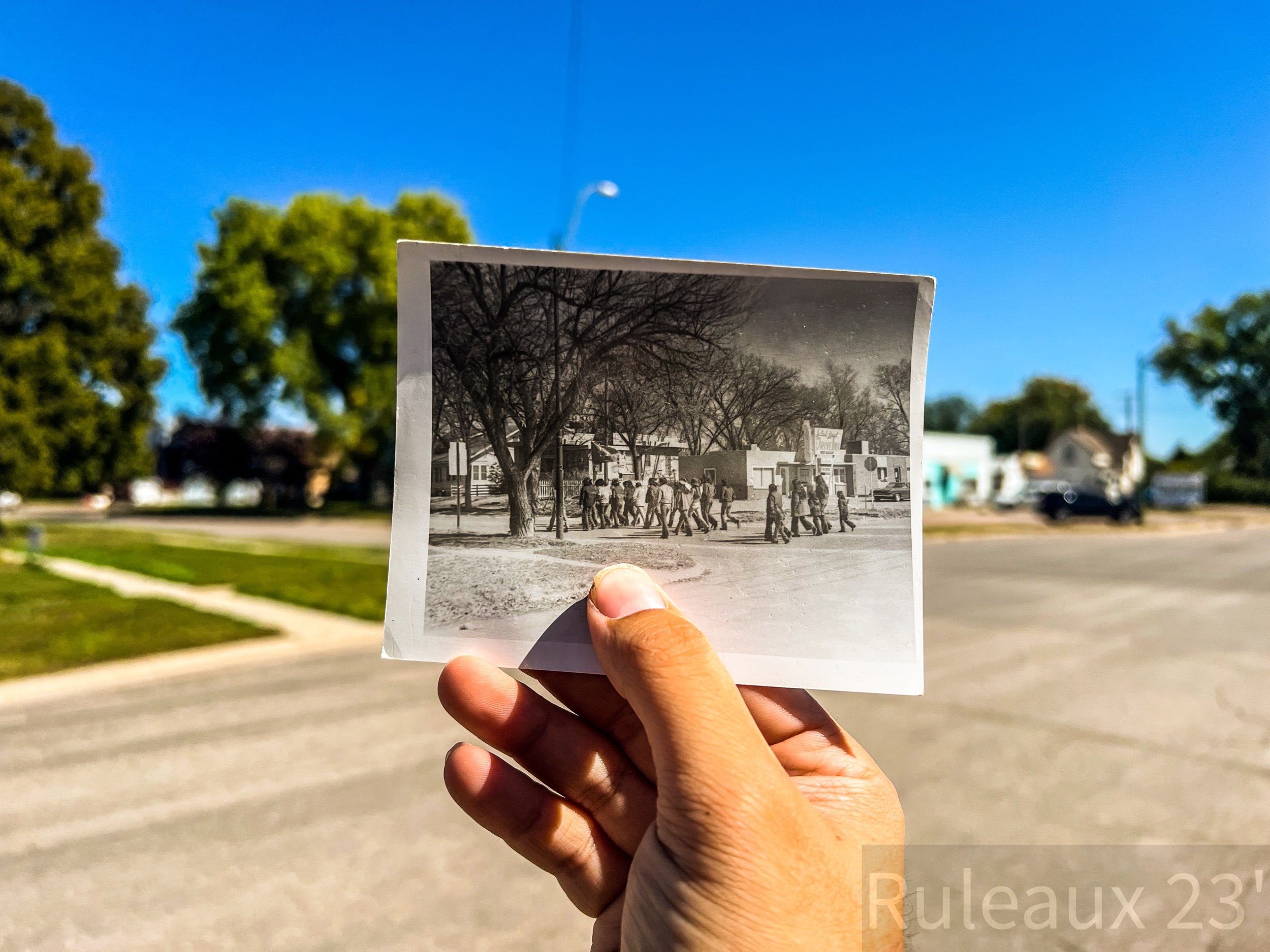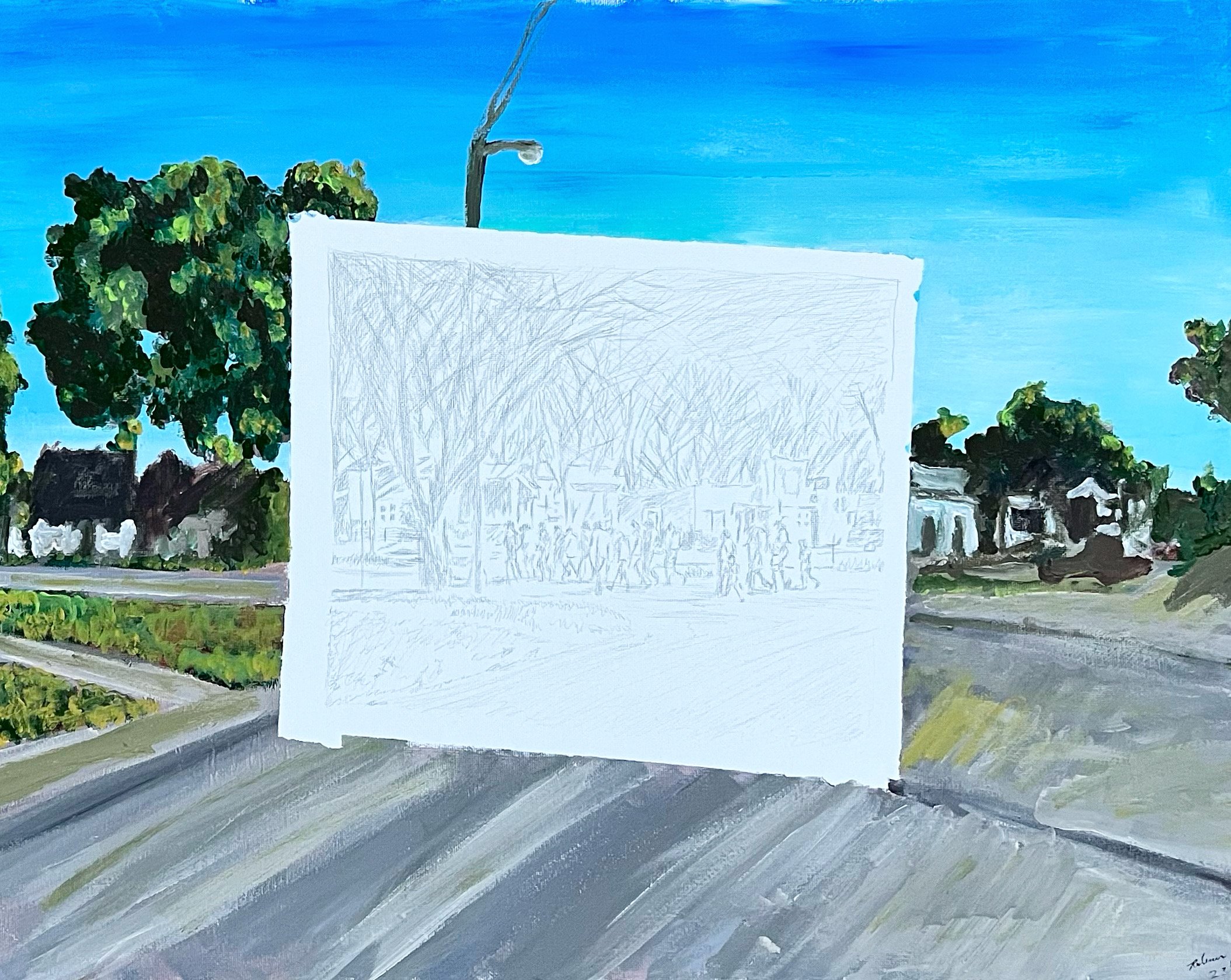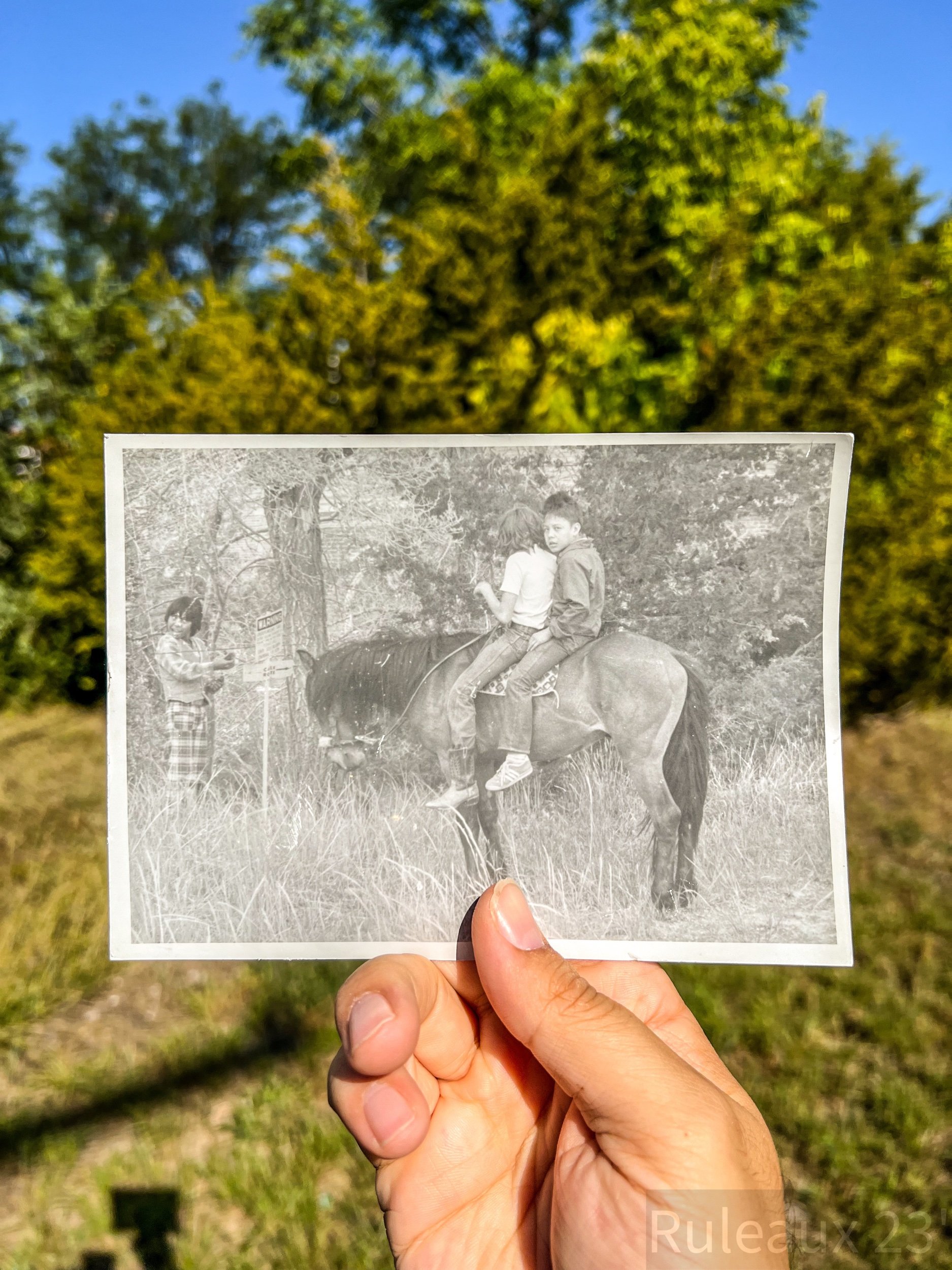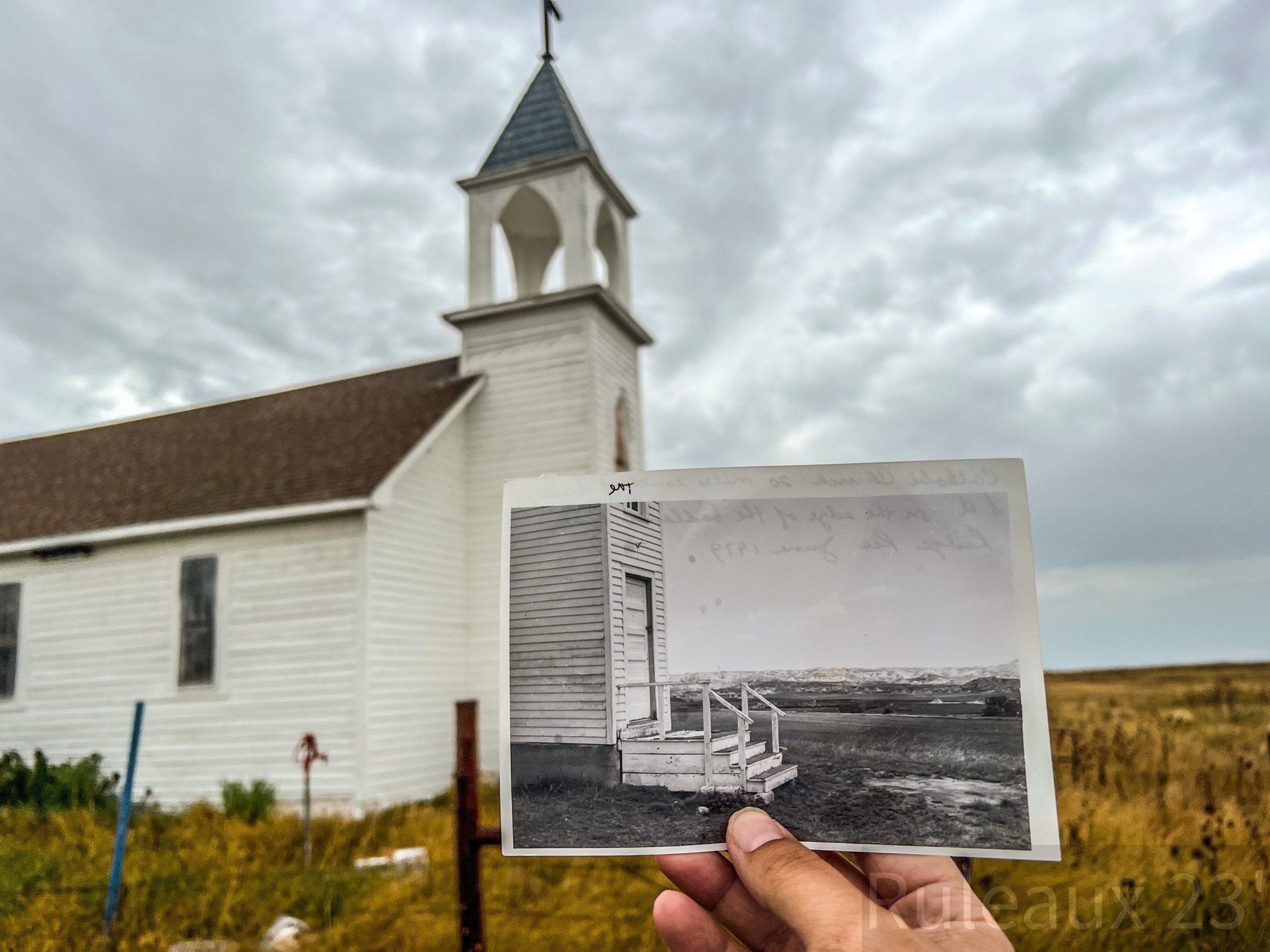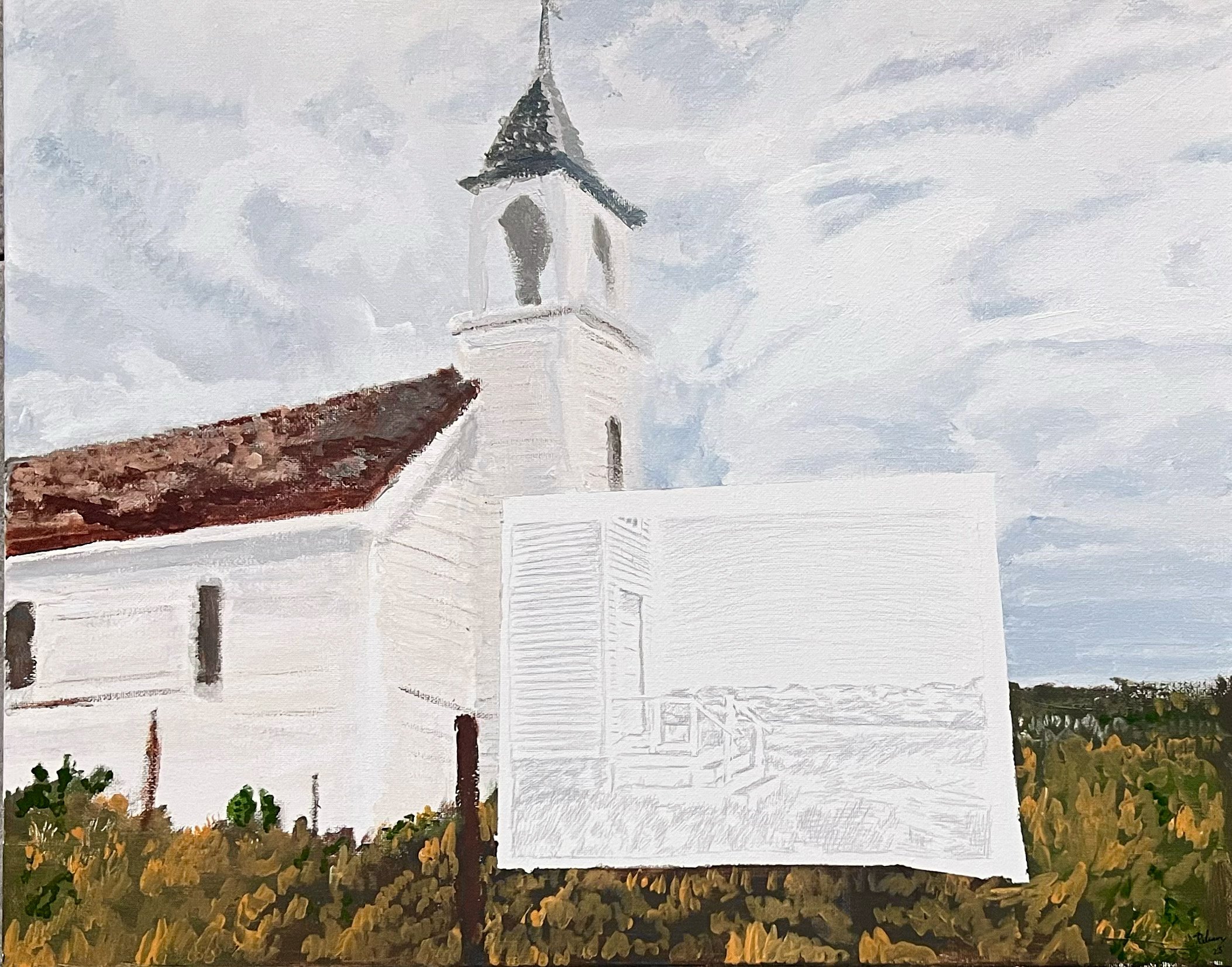Miyé Šni Háŋni
Sample from “The Oregon Trail:sketches from the prairie,” on Hubert Ruleau, Nicholas’s father:
“Rouleau had a broad ruddy face marked with as few traces of thought or care as a child's. His figure was remarkably square and strong, but the first joints of both his feet were frozen off, and his horse had lately thrown and trampled upon him, by which he had been severely injured in the chest. But nothing could check his inveterate propensity for laughter and gayety. He went all day rolling about the camp on his stumps of feet, talking and singing and frolicking with the Indian women, as they were engaged at their work.
In fact Rouleau had an unlucky partiality for squaws. He always had one whom he must needs bedizen with beads, ribbons, and all the finery of an Indian wardrobe; and though he was of course obliged to leave her behind him during his expedi-tions, yet this hazardous necessity did not at all trouble him, for his disposition was the very reverse of jealous. If at any time he had not lavished the whole of the precarious profits of his vocation upon his dark favorite, he always devoted the rest to feasting his comrades. If liquor was not to be had and this was usually the case strong coffee was substituted. As the men of that region are by no means remarkable for providence or self-restraint, whatever was set before them on these occasions, however extravagant in price, or enormous in quantity, was sure to be disposed of at one sitting. Like other trappers, Rouleau's life was one of contrast and variety. It was only at certain sea-sons, and for a limited time, that he was absent on his expeditions. For the rest of the year he would be lounging about the fort, or encamped with his friends in its vicinity, lazily hunting or enjoying all the luxury of inaction; but when once in pursuit of beaver, he was involved in extreme privations and desperate perils. When in the midst of his game and his enemies, hand and foot, eye and ear, are incessantly active. Frequently he must content himself with devouring his evening meal uncooked, lest the light of his fire should attract the eyes of some wandering Indian; and sometimes having made his rude repast, he must leave his fire still blazing, and withdraw to a distance under cover of the darkness, that his disappointed enemy, drawn thither by the light, may find his victim gone, and be unable to trace his footsteps in the gloom. This is the life led by scores of men in the Rocky Mountains and their vicinity. I once met a trapper whose breast was marked with the scars of six bullets and arrows, one of his arms broken by a shot and one of his knees shattered; yet still, with the undaunted mettle of New England, from which part of the country he had come, he continued to follow his perilous occupation. To some of the children of cities it may seem strange that men with no obiect in view should continue to follow a life of such hardship and desperate adventure; yet there is a mysterious, restless charm in the basilisk eye of danger, and few men perhaps remain long in that wild region without learning to love peril for its own sake, and to laugh carelessly in the face of death.
On the last day of our stay in this camp, the trappers were ready for departure. When in the Black Hills they had caught seven beaver, and they now left their skins in charge of Reynal, to be kept until their return. Their strong, gaunt horses were equipped with rusty Spanish bits and rude Mexican saddles, to which wooden stirrups were attached, while a buffalo robe was rolled up behind them, and a bundle of beaver traps slung at the pommel. These, together with their rifles, their knives, their powder-horns and bullet-pouches, flint and steel and a tincup, composed their whole traveling equipment. They shook hands with us and rode away; Saraphin with his grim counte-nance, like a surly bulldog's, was in advance; but Rouleau, clambering gayly into his seat, kicked his horse's sides, flourished his whip in the air, and trotted briskly over the prairie, trolling forth a Canadian song at the top of his lungs. Reynal looked after them with his face of brutal selfishness.
"Well," he said, "if they are killed, I shall have the beaver. They'll fetch me fifty dollars at the fort, anyhow."
This was the last I saw of them.“

